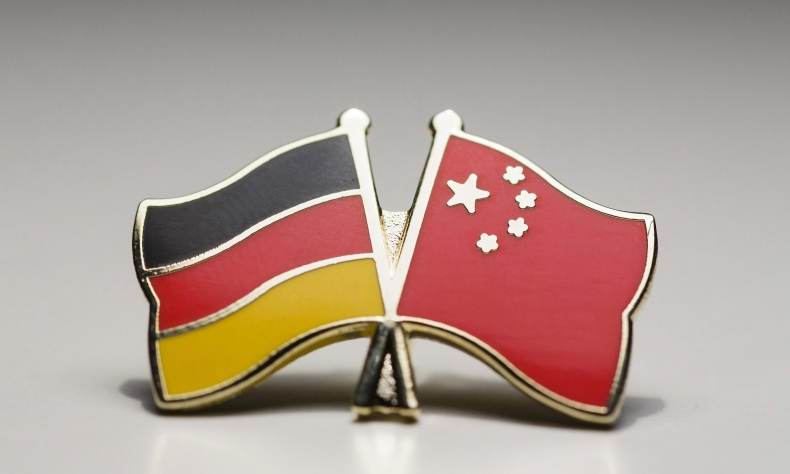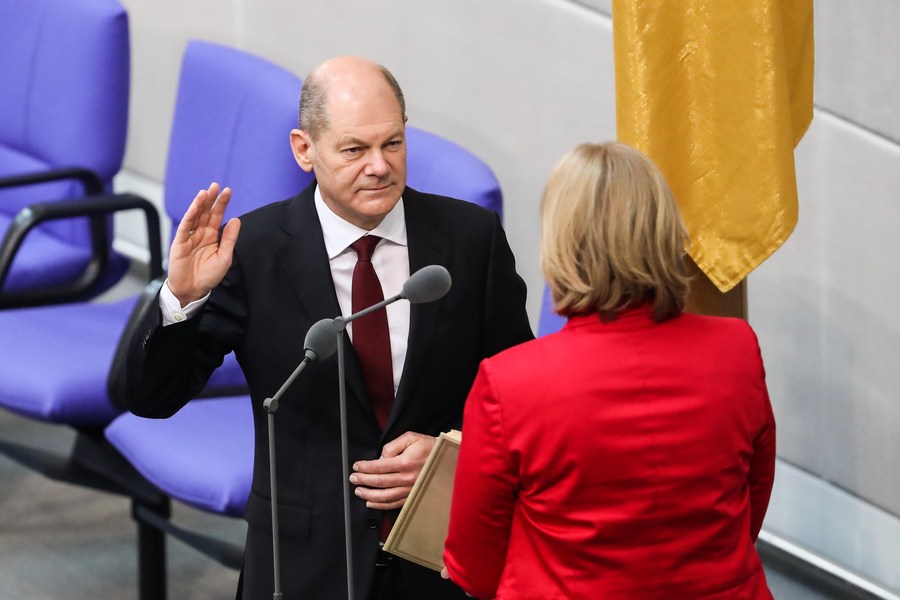The Sino-German Relationship Remains Vital

Irrespective of differences, China’s relationship with Germany is likely to remain productive, open, cordial, and beneficial, with proper management of differences and issues in a mature and orderly fashion.
Angela Merkel has departed as chancellor of Germany to be replaced by Olaf Scholz of the Social Democratic Party (SDP), leading a new coalition in the Bundestag. Merkel’s exit closed an era in which she dominated European politics for over 16 years, consolidating herself as a geopolitical titan and one of the most esteemed leaders in the world. In the process of doing so, she built a strong relationship with China and acted as a leader in shaping the European Union’s ties with Beijing.
But the end of the Merkel era also comes amidst a changing world. The U.S. is hell-bent on pursuing “geopolitical competition” against China and attempting to contain its rise. Accordingly, it has been exerting pressure on countries in Europe to follow its foreign policy, acting through a coalition of diplomatic, media, civil society, and think-tank channels to twist public opinion against Beijing and buy legitimacy for its hostile policies. Germany, in turn, has been a primary target of this effort, and with the new government, it has been hoped that its policy of “engagement” with Beijing would change.
However, new chancellor Schloz recently made comments to suggest little will in fact change, saying: “We must orient our China policy toward the China that we find in reality,” and although there may be differences in worldview, that such doesn’t change the fact that a country of the size and history of China has a central place in the international community. He subsequently pledged “fair economic competition for mutual benefit, with the same rules for all.” The remarks unquestionably keep the door open for mutually beneficial relations.

Pragmatism is the only way forwards for China-Germany ties, and neither side can afford to fall into the chasm of Cold War confrontation and hostility. Germany, more so than any nation, understands how a legacy of dividing the world into competing “blocs” is a counterproductive, damaging, and obstructive move that hurts the interests of all sides. Berlin’s post-Cold War policy has subsequently been about building unity and bridges, not distrust and destruction, no matter how severe the country’s crisis is.
Likewise, going further back, Germany also understands from the horrors of its history how dangerous it is to deliberately whip up distrust, hatred, and paranoia as a weapon of foreign policy and the extreme consequences of struggles for hegemony between nations. This is what has placed multilateralism, engagement, and moderation at the heart of its worldview, which Americans simply do not understand in constantly deriding its openness to China, as well as its acknowledgment that the two countries can indeed work together and deliver win-win results.
As a result, it should go without saying that the Germany-China relationship is one of the world’s most critical and essential geopolitical relationships. It is not about a contest of ideologies, cultures, or civilizations. Still, as Scholz alludes to, the practical reality is that both countries are significant economies and players on the world stage. They both subsequently impact the well-being and outlook of the world as a whole. Moreover, Germany is an interlocking and leader for Europe, whereas China represents the world’s most populous country and its second largest economy.
How can the global economy thrive without communication between Germany and China? How can issues such as climate change be addressed? All these factors stand to remind us that international politics is not a zero-sum game of win or lose, and cooperation is not an optional preference but something mandatory in the name of the common good.
As a result, irrespective of differences, China’s relationship with Germany is likely to remain productive, open, cordial, and beneficial, with proper management of differences and issues in a mature and orderly fashion. It should never be defined by confrontation, hegemony, or power politics.
 Facebook
Facebook
 Twitter
Twitter
 Linkedin
Linkedin
 Google +
Google +







